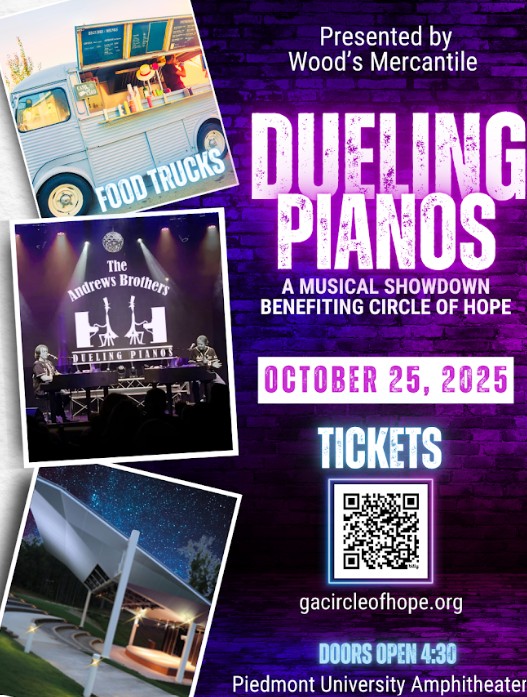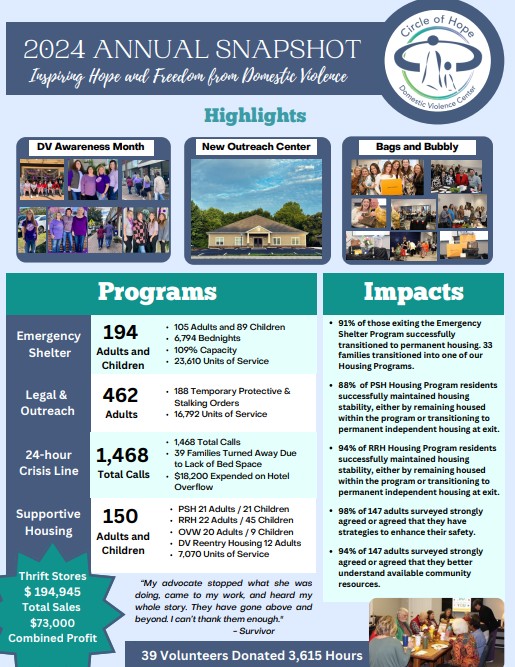A woman stands at the edge of a gas station parking lot in the late afternoon, her face half-hidden behind her hair, her hand still trembling around the cell phone. She has already done the hardest part—she called. The crisis line operator spoke softly yet assertively, asked if she was in a safe place to talk, and now a police officer is on the way. She waits. The asphalt radiates heat. The air hums with the smell of diesel and fried chicken and panic.
In Northeast Georgia, the scene plays out almost every day. A woman, sometimes with children, sometimes alone, calls the 24-hour crisis line run by one of the few domestic violence shelters scattered across the mountain counties.
An officer will pick her up at the corner. It’s not easy or elegant. It’s gritty. The ride stays silent except for the crackle of the police radio and the hum of tires over asphalt. Still, it’s the beginning of something: a plan, an opportunity for better.
It’s also the beginning of self-doubt. That secret passenger. It rides alongside her in the back seat. Were things really that bad? Did she overreact? Is it worth all this—the heat, the shame, the unknown waiting at the end of this road? She stares out of the window as the town passes in blurs of gas stations and grocery stores, wondering if freedom always feels this much like failure before it starts to feel like relief.
Free of danger; full of hope
When she arrives at the Circle of Hope shelter, an advocate meets her at the door. Before long, she is taken to a closet where she selects a hygiene kit, towels, and a bar of smooth Dove soap. Inside, the air smells of detergent and coffee. There are clean sheets, a pantry lined with food, and safety. Her hands tremble as the shock drains away; she notices her skin itching where the heat rash rises on her collarbone. The body doesn’t know peace yet. It only knows that it’s no longer in danger.
This is what survival looks like in Northeast Georgia: locked doors, quick thinking, and the steady, invisible work of advocates who answer calls at 3 a.m. It’s also why, one evening this fall, Circle of Hope will fill an amphitheater with song, food, beer, and bustle.
A song for survival
That’s the story Circle of Hope carries into its fall fundraiser, a night of dueling pianos at Piedmont University’s Arrendale Amphitheater.
“It’s something that hasn’t been done before here,” the organizers said. “It’s a one-of-a-kind, audience-driven performance.”
At a conference last year, the nonprofit’s team discovered dueling pianos, a performance where two musicians take turns playing, joking, and sparring in song. The crowd chooses the music by making requests, often with a few dollars tucked beside the note. They watched strangers dance, laugh, and sing in unison and realized: this was what they wanted to build, a night that makes people part of the melody.
The Andrew Brothers, a duo known for transforming audiences into participants, will headline the event. They’re donating all their tips back to Circle of Hope. Every song request, every sing-along, will turn into tangible help for survivors.
“People influence the night’s music through their donations,” said Michelle Black, resource and development manager. “Every request changes the energy in the amphitheater. It becomes a reflection of the audience itself.”

The Place, the people, the purpose
A board member suggested Piedmont’s Arrendale Amphitheater, a gently curved outdoor space where the mountain air cools by dusk and the last light fades into an inky black sky spangled with stars. By late October, the trees around Demorest burn gold and russet, and the evenings carry that first true edge of autumn. Once the organizers saw it, they knew how perfectly the concert would pair with flannel sweaters, snuggly blankets, and the unmistakable coziness of an October night.
Food trucks, Café Cubana, Super Taco, Fenders, and Street Sweets, will line the walkway and raffles will add a burst of excitement to the night.
“It’s something that hasn’t been done before here,” the organizers said. “It’s a one-of-a-kind, audience-driven performance.”
The work after the music
In Georgia, more than 250,000 domestic violence incidents were reported between 2016 and 2020, and 770 people lost their lives to family violence. Shelters like Circle of Hope save lives by giving survivors a place to go when returning home would mean danger. They ease the burden on police, provide refuge at the most volatile moment, and help rebuild families in safety instead of crisis.
By showing up for Dueling Pianos, you do more than enjoy a night out. Every ticket, every song request, every shared plate of Cuban food and cold beer helps keep beds made, papers filed, and children asleep through the night without the sounds of screaming or dishes breaking against the wall.

Image credit: Circle of Hope.
Tickets range from $30 to $50, or $400 for a reserved table for six. Wood’s Mercantile, a downtown fixture, presents the event on behalf of Circle of Hope. Guests who can’t attend can still donate through gacircleofhope.org, or in person at Circle of Hope’s Outreach Center in Demorest.
The resonance
Back in the shelter, the woman who arrived from the gas station now lies in a clean bed. Her stomach is full. Her hair smells of soap. She turns on her side and closes her eyes, the first real sleep she’s had in weeks.
Outside, the night hums with the sound of crickets and, in the distance, the echo of piano keys warming up for rehearsal. The connection between those two sounds, the crickets and the music, the survival and the song, is what Circle of Hope exists to sustain.
Tomorrow, the phones will ring again. Another woman will stand in the Georgia sun and make the call that changes everything. And somewhere, because of a crowd that sang and laughed and opened their wallets under the same sky, there will be a bed waiting.
In Habersham County, this organization is breaking the circle of violence and building, in its place, a Circle of Hope.


![[Aggregator] Downloaded image for imported item #1151877](https://whitecounty.com/wp-content/uploads/2025/10/COH-domestic-violence-chart-us.jpg)

